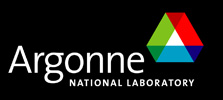UC/APS Mini-Symposium
Room A1100
APS,

Alteration of cellular proteins or organelles due to reactive chemicals or high-energy physical stresses represents the most common mechanism of tissue injury leading to tissue necrosis. Diseases such as myocardial infarction, cerebrovascular stroke, cerebral palsy, burns, electrical shock, and acute radiation poisoning are examples. The success of modern gene therapy also depends on repair of the cell membrane after insertion of new genetic material. When normal cellular repair functions are incapable of managing the cell injury, pharmaceutical intervention can be lifesaving. The mission of the Center for Molecular Repair is to investigate strategies that restore cell membranes, organelles, and proteins to their native structure, while training scientists and clinicians in this new field of research.
The purpose of this mini symposium is to acquaint UC researchers with the APS and APS Users and staff to further research and collaborations.
| UC/APS Mini-Symposium | ||
| Agenda | ||
| The UC/APS meeting is scheduled for Wednesday, December 10, 2003, at 4:00 p.m. in the Rm. A1100. The agenda is listed below: | ||
| 4:00 p.m. | Welcome (Dr. Murray Gibson, APS) | |
| 4:05 p.m. | Tour of the APS (Dr. Dennis Mills, APS) | |
| 4:30 p.m. | Introduction (Dr. Raphael Lee, UC) | |
| 4:45 p.m. | Membrane-targeted neuroprotection (Dr. Jeremy Marks, UC) | |
| 5:00 p.m. | Lipid Corralling and Poloxamer Squeeze-out in Membranes (Dr. Ka Yee Lee, UC) | |
| 5:15 p.m. | Poloxamer 188 mediated neuroprotection in the rat brain (Dr. David Frim, UC) | |
| 5:30 p.m. | Evidence for enhanced refolding of heat denatured proteins by Poloxamer 188 (Dr. Florin Despa, UC) | |
| 5:45 p.m. | Structural Studies of genome using synchrotron radiation (Dr. A. Joachimiak, BIO/ANL) | |
| 6:00 p.m. | A bacterial "factory" for the production of membrane proteins for structure determination (Dr. D. Hanson, BIO/ANL) | |
| 6:15 p.m. | High throughout crystallography (L. Keefe, Ph.D., IMCA/IIT) | |
| 6:30 p.m. | Designer affinity reagents (Brian Kay, Ph.D., BIO/ANL) | |
| 6:45 p.m. | Discussion (Dr. Raphael Lee, UC) | |
| 7:15 p.m. | Adjourn | |

